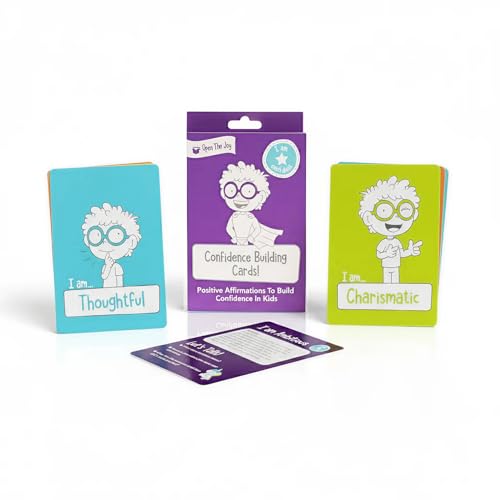To help kids handle peer pressure, encourage open conversations about their feelings and validate their fears. Teach them simple, respectful ways to say no, like “Thanks, but no.” Praise their good choices to boost pride and confidence. Support their independence by reminding them making mistakes is part of growing. Keep an eye on social trends to better understand peer influences. If you want more tips on empowering your child, there’s plenty more to explore.
Key Takeaways
- Teach children assertive phrases like “No, thanks” to confidently decline peer pressure.
- Encourage open communication to understand and validate kids’ feelings about peer influences.
- Reinforce that saying no is a sign of strength and helps build self-confidence.
- Celebrate moments when kids resist negative peer pressure to boost their pride and independence.
- Help children identify positive friends who respect their boundaries and support healthy choices.

Peer pressure can be a powerful force that influences kids’ decisions and behavior, often making it challenging for them to stand up for what they believe is right. When your child faces peer influence, they might feel pressured to fit in, try risky activities, or go along with the crowd—even if it conflicts with their values. Building your child’s self-confidence is essential because it helps them resist negative peer pressure. When they believe in themselves, they’re more likely to say no without feeling guilty or fearful of rejection. Self-confidence acts as a shield, empowering kids to stand firm in their choices and feel proud of doing so.
You can help your child develop their self-confidence by encouraging open communication. Listen to their concerns and validate their feelings without judgment. When they share their experiences, acknowledge their bravery in speaking up, which reinforces their sense of strength. Praise their efforts when they make good decisions, no matter how small, so they learn to trust their instincts. Role-playing different scenarios at home can also prepare them for real-life situations. Practice how to say no assertively, using clear and respectful language. For example, teach them phrases like, “No, thanks,” or “I don’t want to do that,” so they feel ready when peer pressure arises.
It’s also important to help your child understand that peer influence isn’t always negative. Sometimes, friends can positively motivate each other to try new activities or make healthy choices. However, they need to recognize when peer pressure turns harmful and know how to navigate those moments confidently. Encourage them to choose friends who respect their boundaries and values, which naturally reduces the impact of negative peer influence. Understanding industry trends can also help you stay informed about social dynamics and peer influence tactics.
Remind your child that feeling proud of their decisions is a sign of strength, not weakness. When they say no to something uncomfortable or unsafe, they’re demonstrating self-respect. Celebrate these moments to reinforce their positive behavior. Let them know that everyone makes mistakes and that it’s okay to feel unsure sometimes; what matters is that they learn from each experience and continue to grow in confidence.

Cool, Calm, and Confident: A Workbook to Help Kids Learn Assertiveness Skills
As an affiliate, we earn on qualifying purchases.
As an affiliate, we earn on qualifying purchases.
Frequently Asked Questions
How Can Parents Model Good Peer Pressure Resistance?
You can model good peer pressure resistance by demonstrating confident decision-making and standing up for your values, showing your child how to handle peer influence effectively. When you resist negative peer pressure, you teach them to do the same. Be open about your choices and explain why you prioritize your beliefs, so they learn that resisting peer influence is both possible and empowering. Your actions serve as a powerful example for healthy peer interactions.
What Are Signs a Child Is Struggling With Peer Pressure?
You notice your child hesitating, withdrawing, or acting out of character, which signals they’re struggling with peer influence. They might ignore social cues, go along with risky choices, or become anxious in social settings. These signs show they’re feeling pressured or unsure. By observing these behaviors, you can step in, offer support, and help them build confidence to resist negative peer influence, fostering their independence and self-esteem.
How Can Teachers Support Kids Facing Peer Pressure?
You can support kids facing peer influence by implementing effective classroom strategies. Encourage open conversations about peer pressure and create a safe space for students to share their experiences. Reinforce positive decision-making and self-confidence regularly. Recognize and praise students who stand up for themselves. By fostering a supportive environment, you empower children to resist negative peer influence and develop resilience, helping them feel proud of their choices.
Are There Specific Activities That Boost Kids’ Confidence?
Imagine a vibrant playground where kids step into role-playing scenarios, like actors on a stage, practicing their responses. Confidence-building games serve as the soundtrack, boosting their assurance and resilience. These activities create a rhythm of success, helping children internalize their strengths. By engaging in such dynamic exercises, kids develop the courage to face challenges and say no when needed, feeling proud of their growing self-esteem.
How Does Cultural Background Influence Peer Pressure?
Cultural influences shape how you perceive peer pressure by shaping your values and expectations. In some cultures, strong peer norms encourage conformity, making it harder to resist pressure. Conversely, cultures that promote individualism may empower you to stand your ground. Understanding these cultural differences helps you recognize the roots of peer pressure, so you can better support kids in maneuvering social situations confidently and staying true to their values.

Learning Resources Pretend & Play Doctor Set Blue – Medical Kit for Kids, Role Play, Toddler Toys, Social Skills, Language Skills, Fine Motor, Birthday Gift for Boys and Girls
BUILDS SOCIAL CONFIDENCE – Helps kids ages 3+ ease anxiety around doctor visits through imaginative role play that…
As an affiliate, we earn on qualifying purchases.
As an affiliate, we earn on qualifying purchases.
Conclusion
Remember, you hold the key to your own garden—you can choose which seeds to nurture. When you say no with confidence, you’re watering your inner strength and letting your pride blossom. Peer pressure may try to cast shadows, but your values are like sunlight, guiding you back to what feels right. Trust in yourself, and let your confidence be the sturdy tree that stands tall, rooted in pride and self-respect.

Confidence Building Cards for Kids | 50+ Positive Affirmation & Self-Esteem Building Activities | Mindfulness, Emotional Intelligence & Self-Reflection Deck | Screen-Free Learning Tool for Ages 4+
BOOST SELF-ESTEEM & CONFIDENCE: Inspire kids to believe in themselves with 50+ positive affirmation cards designed to build…
As an affiliate, we earn on qualifying purchases.
As an affiliate, we earn on qualifying purchases.
peer pressure resistance activity kits
As an affiliate, we earn on qualifying purchases.
As an affiliate, we earn on qualifying purchases.









